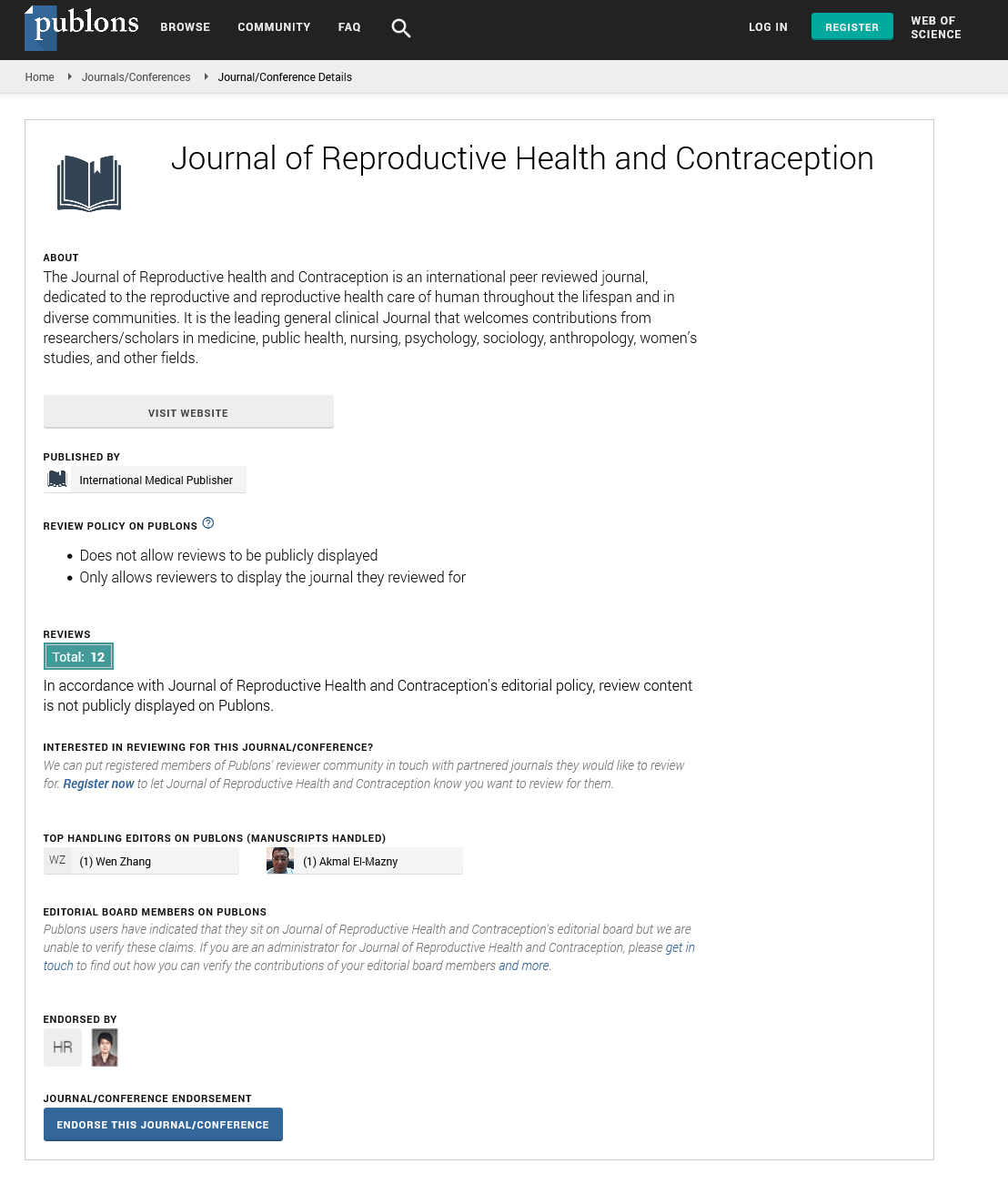ISSN : 2471-9749
Journal of Reproductive Health and Contraception
'Respectful maternal care' and by who? : Perspectives of Somali community at IFO refugee camp, Dadaab, Kenya
International Congress on Midwifery and Maternal health - May Webinar
May 19-20, 2021 | Webinar
Jacqueline Mutheu Kituku
Kenyatta University, Kenya
ScientificTracks Abstracts: J Contracept Stud
Abstract
Statement of the problem: Any form of disrespect of women of child bearing age within the healthcare system may create a lacuna, thereby forcing women to seek alternative care from persons who are neither skilled nor able to promptly recognize, manage and or refer complications arising during pregnancy, labour, child birth and puerperium. The global high maternal mortality rate is associated with preventable complications occurring during pregnancy, labour, child birth and the puerperium. Those who survive miraculously, suffer lifelong disability which affects their quality of life. Services offered by traditional birth attendants (TBAs) continue to be sort by women of reproductive age in both rural and urban African settings including Dadaab, despite the presence of health facilities. TBAs seem to offer a type of care that is regarded as being respectable to the woman and her family. Hence, this study aimed to investigate the perspectives of the Somali community residing in Dadaab refugee camps on what they consider as respectful maternal care. Methodology: A preliminary study was conducted at IFO refugee camp, among 3 TBAs, 2 save mothers, 2 married men and 2 expectant women. Focused group discussions, interviews and video recordings were conducted. Data was coded, categorized into thematic areas and content was analyzed. Findings: TBAs and save mothers accorded Somali women both social and psychological support during pregnancy, child birth, and postnatal period, and treated them with respect. Cultural beliefs and practices such as prayer, disposal of the placenta and the gender of the care provider, play a big role in maternal care among the Somali women. Conclusion and Significance: Respectful maternal care should be accorded to all women irrespective of their background and should also be culturally sensitive. Virtual reality should be incorporated into midwifery training to enhance the knowledge, skills and attitudes of future midwives.
Biography
Midwifery expert with a passion for quality maternal and neonatal health. She possesses a wide experience in managing pregnancies, births and postnatal care. She is also skilled in managing obstetric emergencies. She has vast experience in module writing for midwifery curriculum and training of the same. She has consulted for various organizations in the areas of midwifery curriculum and maternal health
Google Scholar citation report
Citations : 201
Journal of Reproductive Health and Contraception received 201 citations as per Google Scholar report
Journal of Reproductive Health and Contraception peer review process verified at publons
Abstracted/Indexed in
- Google Scholar
- China National Knowledge Infrastructure (CNKI)
- WorldCat
- Publons
Open Access Journals
- Aquaculture & Veterinary Science
- Chemistry & Chemical Sciences
- Clinical Sciences
- Engineering
- General Science
- Genetics & Molecular Biology
- Health Care & Nursing
- Immunology & Microbiology
- Materials Science
- Mathematics & Physics
- Medical Sciences
- Neurology & Psychiatry
- Oncology & Cancer Science
- Pharmaceutical Sciences
